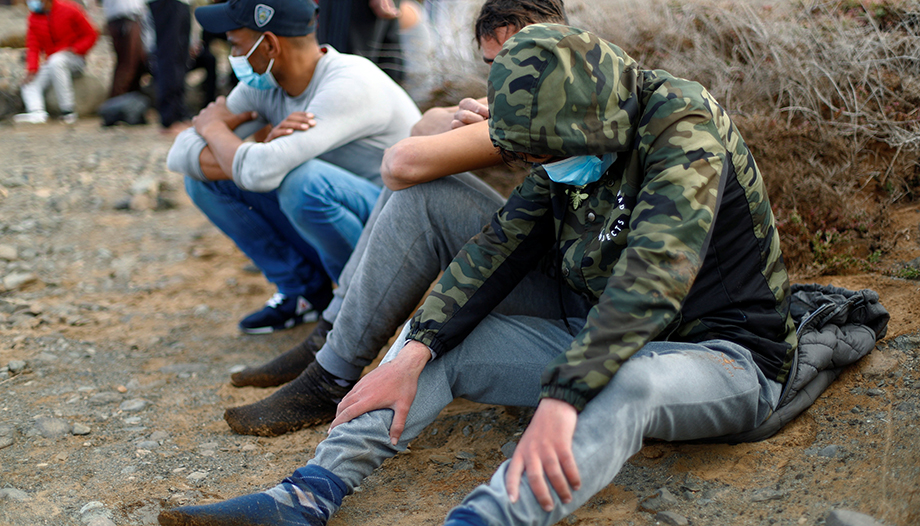The official figures related to the mental health of inmates "are worrisome," according to the 2022 Annual Report on Immigration Detention Centers (CIE), presented in the University of Comillas de Madrid for the Jesuit Migrant Service (SJM).
Last year "the suicide prevention protocol was activated on 51 occasions (27 of them in Madrid). In addition, 185 people were locked in temporary segregation rooms, with an average stay of almost 4 days, most of them (74% of the total) either for 'violent behavior' or for cases of covid-19. More alarming is the percentage of these isolations for reasons of threat or attempted self-harm: 15 % of the total number of cases," the report adds.
A study by the University of Seville to assess the level of mental health of inmates, in collaboration with the SJM, observed "anxious and depressive symptoms, as well as attempts at self-harm, in 7 out of 10 interviewed. In 70% of these cases, the symptoms began as a result of the internment".
This study reveals how symptomatology is reduced as a function of the quality of detention conditions, as well as emphasizing the need for listening and psychosocial tools for police and CIE service personnel, the study explains.
SJM network teams visiting CIEs continue to detect "malpractice in matters related to referrals for aggravated health problems or in relation to the willingness to apply for international protection".
Data
A total of 2,276 people were interned in the six operational CIEs in Spain in 2022, 44 of them women, a slight increase over the previous year. The official figures highlight the identification of 11 minors in the centers.
Furthermore, the SJM study adds, as stated above, that "the official figures provided by the Ministry of the Interior, again outside the deadlines stipulated by the Transparency Law in a display of opacity, reveal concerns about the situation of inmates, especially with regard to the deterioration of their mental health and situations of internment that should not occur, as in the case of minors or citizens with EU nationality".
The Jesuit Migrant Service has called on the management of the centers and control courts to harmonize the internal rules to eliminate the differences that generate unequal rights in the CIE.
The Spanish State, the SJM notes, forcibly repatriated 3,642 people in 2022, 53.12 % from CIEs. A percentage similar to the last two years, but notably lower than 2018 and 2019. "45 % of the people who left from CIEs last year were due to their release," he reports.
As for women, "70 % of the inmates were not expelled and were released". They highlight "the high rates of forced return in Las Palmas (82.5 %) and Algeciras (61 %), in contrast to the CIE of Barcelona, with 64 % of releases".
In its conclusions, the SJM "calls on the police authorities and all legal operators involved in CIE to establish and harmonize the rules of operation of the CIE and to exercise extreme discernment in their decision of internment, taking this alternative as something exceptional".












